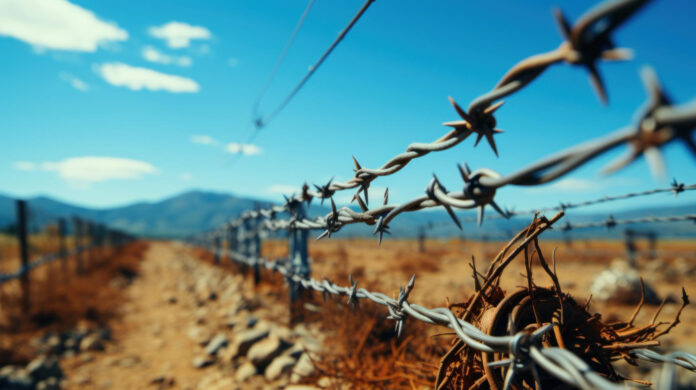Retaliation escalates conflict along the Lebanon-Israel border following the killing of senior commander Mohammad Naameh Nasser
In a dramatic escalation of tensions, Hezbollah, the Lebanon-based militant group backed by Iran, unleashed a barrage of over 200 rockets and drones into northern Israel. The attack, which targeted multiple military bases, followed swiftly after the killing of senior Hezbollah commander Mohammad Naameh Nasser in an Israeli airstrike near Tyre, southern Lebanon.
The Israeli military confirmed the death of one officer in the Hezbollah barrage, which also caused several fires in northern Israel. In response, Israel retaliated by striking Hezbollah “military structures” in southern Lebanon, particularly in the towns of Ramyeh and Houla. Lebanese media reported casualties from Israeli drone strikes in Houla.
The conflict, intensifying over recent months, has seen daily exchanges of fire across the Lebanon-Israel border, exacerbated by Hezbollah’s assertion of support for Hamas, another Iran-backed group, involved in the ongoing conflict in Gaza.
Mohammad Naameh Nasser, the Hezbollah commander killed, was pivotal in the organization, leading operations from southern Lebanon. His death marked a significant escalation, prompting Hezbollah’s vow to continue targeting new Israeli sites in retaliation.
International efforts, primarily led by the United States and France, aim to prevent the conflict from spiralling into a full-scale war that could destabilize the region further. Diplomatic manoeuvres have sought to separate the tensions on the Lebanon-Israel border from the ongoing Gaza conflict, underscoring the complexities and interconnectedness of Middle Eastern geopolitics.
The situation remains volatile, with tens of thousands displaced and casualties rising on both sides. Hezbollah’s formidable arsenal of rockets and missiles, estimated at 150,000, poses a direct threat to Israeli security, heightening fears of a broader regional conflict involving Iran.
Analysis:
- Political: The conflict underscores longstanding tensions between Israel and Hezbollah, exacerbated by regional power dynamics involving Iran’s influence. It also highlights the challenges for international diplomacy in managing multiple Middle Eastern conflicts simultaneously.
- Social: The escalation has profound humanitarian consequences, displacing tens of thousands and causing civilian casualties on both sides. It reflects broader societal anxieties about security and stability in the region.
- Economic: The conflict disrupts daily life and commerce in affected areas, with significant economic repercussions for both Lebanon and Israel. It further strains already fragile economies during recovery from previous conflicts and economic downturns.
